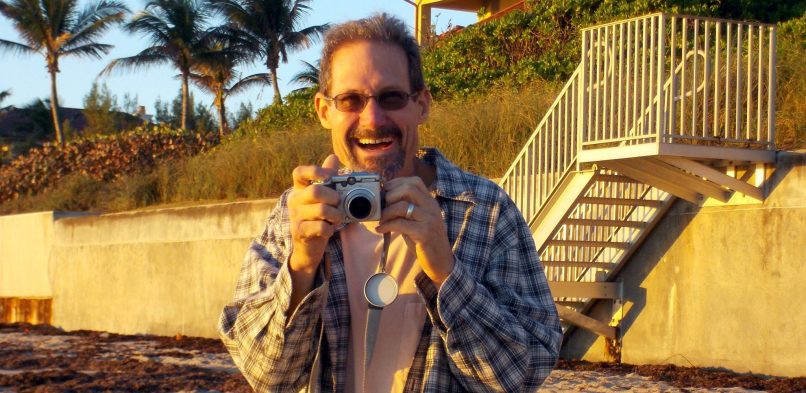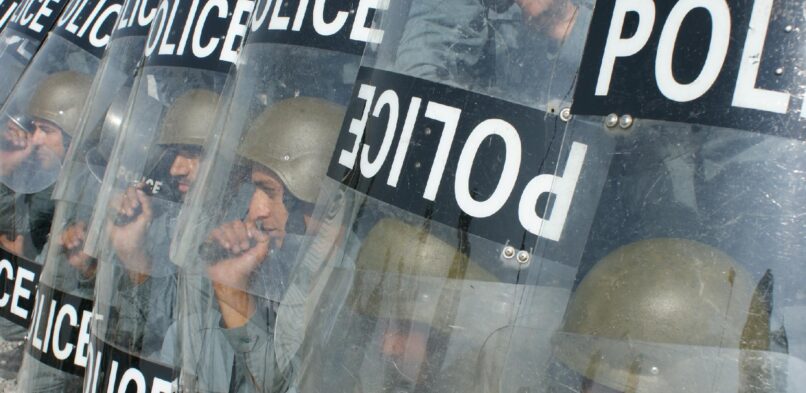Dana

In some four decades of work as a psychoanalyst and psychotherapist with deeply destructive, violent clients, I have observed that fanatical acts are usually perpetrated by people who believe that at their core they are unworthy and evil. Aspects of themselves that they have regarded as virtuous are split off from their own personalities and projected onto a leader and a strident religious cause. The self-denigrating fanatic, devoid of any constructive sense of self other than his identiļ¬?cation with an omniscient and omnipotent leader, experiences his totally worthless self as having to be disregarded or sacriļ¬?ced, so that the “good” self- now identiļ¬?ed with the leader and the cause-can survive and reign as Absolute Truth, the fulļ¬?llment of God’s commandments. In paradise, he is told, his self-sacriļ¬?ce will be abundantly rewarded.
By means of tactics such “loading the language,” asserts Robert Lifton, the cult leader and his lieutenants begin to exclude or blind the critical faculties of the left hemisphere. Speaking in metaphors and cliches that appeal to the typically unsophisticated, underdeveloped right hemisphere of most individuals, these cult leaders gradually take over the thought processes of their flock.
Some cult leaders have relied on techniques such as psychedelic and mood-altering drugs, nutritionally deļ¬?cient diets, sleep derivation, and the monotonous repetition of religious rhetoric or slogans to control their followers in mind, body, and spirit. Taken together, these practices induce a state of psychological confusion and thus dependency on the leader and his doctrines. The follower is caught up in seemingly contradictory worlds of both overstimulation (the seemingly unending repetition of ritual and dogma) and understimulation (such as intellectual and physical deprivation).
When a religious movement becomes a social cause, it is often because mainstream religious groups and other segments of the social order have failed to meet the sociopolitical as well as spiritual needs of a segment of the population. When this occurs, the appearance of an inspired and inspiring charismatic leader is required. Otherwise, the nascent movement comes to a halt or expires.
Fanatical violence is an attempt to seek social justice (this is an explanation, not a justiļ¬?cation), but crucial to the enactment of his violence is the condoning of the destructive person’s deadly actions by his fanatic leader and his group.
It is doubtful if anyone commits murder without some belief-perhaps only momentary-that it is justiļ¬?ed. The violent fanatic’s sense of entitlement in violating society’s deep taboos against murder is buttressed by his leader’s and his group’s interpretation of the social contract.
On a deeper level, a fanatically violent person is deeply frightened, experiencing himself as in danger. Like the child that each of us once was, he still demands automatic justice, a spontaneous assuagement of all his painful feelings of mistreatment. His desperate reasoning holds that those denied their humanity by the social order can only be healed of their shame and self-contempt by the exercise of force. His own inner-loathing is speaking.
There is no more unbearable virulence visited on any of us than unremitting, unrelieved self-contempt that brooks no examination. To survive this contempt, the individual must somehow cast it off. He soon discovers that regarding others as sinners and vermin temporarily relieves his self-loathing, and he gradually learns to convert his unexamined and unchallenged self-contempt into contempt for the world outside his band of true believers. This is the long, dismal history of fanaticism.
Terrorists are collectors of injustice. They are extremely sensitive to slights and humiliations inļ¬icted on themselves or on members of social groups to which they belong or with which they identify themselves. As one observer remarks: “The terrorist seems to be hypersensitive to the sufferings and injustices of the world at large, but totally insensitive to immediate, palpable suffering directly around him, especially if he has produced it himself.” This may be due to the terrorist’s propensity to dehumanize his victims by regarding them as objects or impersonal concepts. Indeed, the dehumanization of the enemy is a critical component within the belief system of terrorists in general.
In the end, however, the threat we face is not from a weapon but from a cluster of beliefs, motivations, and cultural forces that have molded a human mind.
The terrorist perceives himself part of an elite engaged in a heroic struggle to right the injustices of a cruel world. “The struggle in which they are engaged is an obligation, a duty, not a voluntary choice, because they are the enlightened in a mass of unenlightened,”says Cindy Combs in Terrorism in the Twenty-First Century. Going beyond these characteristics, some observers have speculated that many terrorists may be stress seekers with a need to interrupt the monotony of their daily lives by the pursuit of adventure and excitement.
Rushworth M. Kidder, a prominent researcher on terrorism, has identiļ¬?ed seven characteristics observed in interviewing well-known terrorists around the world:
– oversimpliļ¬?cation of issues
– frustration about an inability to change society
– a sense of self-righteousness
– a utopian belief in the world
– a feeling of social isolation
– a need to assert his own existence
– a cold-blooded willingness to kill.
according to Abdul Aziz Rantisi, cofounder and political leader of the terrorist group Hamas, which is dedicated to the destruction of Israel, instead of using the term “suicide bomber,” we should speak of a “self chosen martyr.” Certainly, the writings found in the luggage of Mohamed Atta, one of the key organizers of the suicidal terrorists who carried out and died in the September 11 attacks, contain several references to martyrdom, sacrifice, and serving as a witness.
Since no compromise, no coexistence, between these two world views is possible, the resort to violence, including its most extreme forms, comes to seem perfectly acceptable.
This religious justiļ¬?cation for acts of violence stems from a literal interpretation of a passage in the Koran that promises the most coveted spots in Paradise to those martyrs who die in the course of a jihad (in this context, meaning a holy war, carried out in the interest of religion or partisan identity). So powerful are these distortions of istishad and jihad to the highly suggestible, that they become the justiļ¬?cation for the killing of innocent civilians, even children.
The above is a compilation of quotes from a much larger document (Above linked) which is itself a collection of essays from a variety of different authors. It’s an attempt to compile a summary of what these thinkers have come to understand about the roots of terrorist acts.
It’s a disturbing but worth while read…
The above is written about terrorism — but what’s most disturbing about it is how easily we could substitute another theme into the same text for our tactics differ so little from it…
Our North American militaries use chants, pain and deprivation to mold soldiers. (Barely a day goes by without another report of injustice from the similarly trained police services of our worlds.)
Our fundamentalist churches oversimplify nearly everything, convince people they are evil, subsequently confer upon their most zealous members a covering sense of self-righteousness, socially isolate them and create a frustration about an inability to change society mixed with a utopian belief in how the world would be if it ran by their rules. They fan the flames of injustice, swamp minds with fear and create alternative group identities based on shame and disinformation.
Our media’s talking heads constantly beat the drums of war and violence and repeatedly justify even us actually torturing others while setting up our leaders as heroes to worship.
Because, hey, we’re justified in OUR fight against injustice — right?
Maybe the terrorist acts we are seeing are really the breaking edge of a wave? Maybe they are just the result of an increasingly radicalized world, coalescing around varied but equally increasing themes of injustice that has seized onto whatever ideology happens to be available to justify their violence and allow them to fight back?
Maybe there is a greater, world wide problem of growing injustice that our financial markets, our predatory foreign policy, our shameless exploitation of those with no voice and our callous disregard for human life has created?
Our solution, of course, is to meet their violence with a nearly identical violence and culture of such — instead of asking why the world isn’t getting to be a better place to be and what we have to answer for in such.
This guy closes it best:
Centuries after they lived, such enlightened paradigmatic ļ¬?gures as Buddha, Confucius, Jesus, Mohammed, Moses, and Socrates still profoundly inļ¬uence the lives of others in positive ways. Many other charismatic leaders, however, have been enraged, deluded men and women who have wreaked havoc in the lives of their followers.
each of the ancient prophets that I named earlier presented himself as an ordinary man patiently demonstrating by personal example how to live the examined life. They also created a climate in which their disciples could question and reach their own conclusions about how to live. For example, while Jesus believed in the paramount value of life in the hereafter, he apparently did not minimize the importance of the present world nor ask his followers to sacriļ¬?ce their mortal existence.
Above all, the true prophets did not teach their disciples to hate or ļ¬ee those who opposed them; they all proclaimed that human love is universal and unlimited. They did not need the dubious validation of collecting followers who would embrace their beliefs; nor did they demand that others die for them. Socrates resolutely chose his own death, and Jesus braved alone fear and doubt on the cross.
The true prophet, by not presenting himself as omniscient or omnipotent, allows his followers to transform themselves by choosing their own ordeals, not trials that he imposes on them. In short, he asks his followers to courageously examine their lives. Courage, in this sense, means to know our limitations, to accept ourselves as less than perfect, to live to the best of our ability, and to come together with others to heal the wounds of loneliness, shame, and self-hatred. This is the stuff of love and virtue. This is the stuff from which we can build a more compassionate and just world.
How little that last bit defines any part of our world — including us…
Any sort of honest assessment of the problem of terrorism has to start with the realization that we have met the enemy — and it looks a whole lot like us.
Read more









